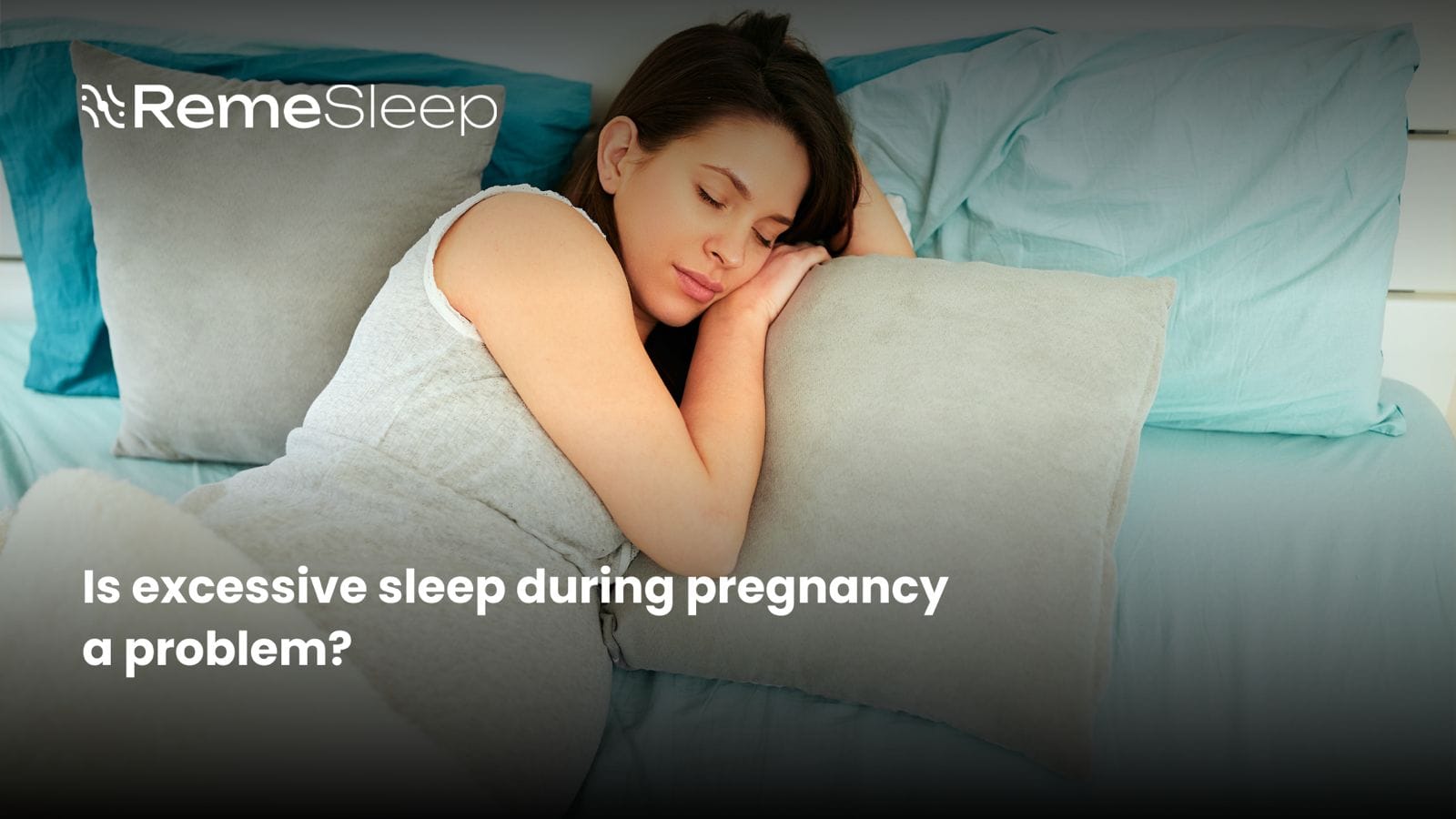Have you ever wondered why, even after a full night’s sleep, you sometimes wake up feeling rejuvenated and other mornings you’re still exhausted? The sort of sleep you’re getting, not just the amount of time you spend in bed, is the solution. Sleep is not a single, consistent condition; rather, it is composed of several phases, each of which plays a distinct part in helping your body and brain heal. REM and deep sleep are two of the most crucial and misinterpreted sleep patterns. Knowing the difference between these two can help you find the key to improved sleep, more focused attention, and overall wellness. Let’s examine what actually occurs when you sleep.
What is sleep?
Your body and brain may relax and heal when you sleep, which is a natural process. Even though it can appear easy, simply shutting your eyes and falling asleep is a sophisticated and necessary process. Your mood and the way your body and mind function are impacted when you don’t get enough good sleep. Actually, there is a whole area of medicine devoted to diagnosing and treating sleep-related problems.
Why do people sleep?
Sleep enables the body and brain to recuperate, heal, and replenish vitality. The brain processes memories, eliminates poisons, and maintains emotional equilibrium when we sleep. The body regulates essential hormones, fortifies the immune system, and repairs damaged tissues. Sleep also supports mental clarity, emotional stability, and physical well-being. Both mental and physical processes begin to deteriorate when one does not get enough good sleep, which impacts everyday functioning and general well-being.
What are the stages of sleep?
Stage 1 (NREM): This is the lightest stage of sleep, lasting just a few minutes. Your muscles relax, and your heartbeat and breathing slow down. It’s easy to wake up during this stage.
Stage 2 (NREM): You enter a deeper sleep where your body temperature drops and brain activity slows. This stage prepares your body for deep sleep and makes up about half of your total sleep time.
Stage 3 (NREM) – Deep Sleep: Also called slow-wave sleep, this is the most restorative stage. Your breathing and heart rate are at their lowest, and your body repairs tissues, builds bone and muscle, and strengthens the immune system. It’s hard to wake up during this stage.
REM Sleep: This stage features rapid eye movement and brain activity similar to being awake. The most vivid dreaming happens here. REM sleep helps with memory, learning, and emotional health. Your muscles are temporarily paralyzed to prevent you from acting out dreams.
What Is REM Sleep?
REM (Rapid Eye Movement) sleep is the stage of sleep characterized by quick, random movements of the eyes, increased brain activity, vivid dreams, and muscle atonia (temporary muscle paralysis). It usually begins about 90 minutes after you fall asleep and recurs several times throughout the night, increasing in length with each cycle.
Characteristics of REM Sleep:
- Vivid dreaming
- Brain activity similar to waking levels
- Increased heart rate and breathing
- Temporary paralysis of major muscle groups
- Consolidation of emotional memories
REM sleep is thought to be essential for cognitive functions like learning, memory processing, and emotional regulation.
What Is Deep Sleep?
Deep sleep, also known as slow-wave sleep (SWS) or N3 stage of non-REM (NREM) sleep, is the most restorative sleep stage. During this time, the body focuses on physical repair and regeneration, including muscle growth, immune system strengthening, and tissue repair.
Characteristics of Deep Sleep:
- Slow brain waves (delta waves)
- Very low heart rate and breathing
- Difficult to wake from
- No eye movement
- Little to no dreaming
Deep sleep usually occurs earlier in the night and decreases as the night progresses. It’s the stage where your body gets the most physical recovery.
Key Differences Between REM and Deep Sleep
Understanding the differences between REM and deep sleep can help clarify why both stages are critical to our overall health.
Feature | REM Sleep | Deep Sleep |
Timing | Occurs later in the sleep cycle | Occurs early in the night |
Brain Activity | High, similar to being awake | Very low, slow brain waves |
| Dreaming | Frequent and vivid | Rare or absent |
| Muscle Movement | Paralyzed (atonia) | Limited, but not paralyzed |
Physical Restoration | Minimal | High (cell repair, immune function) |
| Cognitive Benefits | Memory consolidation, emotional regulation | Restoration and energy for the next day |
Why Are Both REM and Deep Sleep Essential?
Each sleep stage performs unique functions, and you need a balance of both REM and deep sleep to feel well-rested and function optimally.
Benefits of REM Sleep:
- Enhances problem-solving skills
- Helps process emotions and stress
- Strengthens memory and learning
- Supports mental health
Benefits of Deep Sleep:
- Repairs tissues and muscles
- Replenishes energy stores
- Boosts immune function
- Helps with physical recovery after exercise
Missing either stage on a regular basis can have negative consequences. For example, a lack of REM sleep is linked to depression and difficulty concentrating, while insufficient deep sleep may result in fatigue, weakened immunity, and slower physical recovery.
How Much REM and Deep Sleep Do You Need?
The average adult needs between 7 and 9 hours of sleep per night. Out of this:
- REM sleep accounts for about 20–25% (1.5 to 2.25 hours)
- Deep sleep accounts for about 13–23% (1 to 2 hours)
Sleep cycles typically last around 90 minutes, with multiple cycles occurring throughout the night. Deep sleep dominates the first few cycles, while REM sleep becomes more prominent in the later cycles, especially in the early morning hours.
Factors That Influence REM and Deep Sleep
Several lifestyle and health factors can impact the quality and duration of both REM and deep sleep.
Things That Can Disrupt Deep Sleep:
- Caffeine or alcohol use before bed
- Stress or anxiety
- Sleep disorders like sleep apnea
- Chronic pain
Things That Can Reduce REM Sleep:
- Sleep deprivation
- Antidepressants or certain medications
- Alcohol consumption
- Irregular sleep schedules
- Diseases like sleep apnoea
Tips to Improve REM and Deep Sleep
Optimizing your sleep hygiene can improve both REM and deep sleep quality.
1. Stick to a Consistent Sleep Schedule
Go to bed and wake up at the same time every day, even on weekends. This helps regulate your internal body clock.
2. Create a Relaxing Bedtime Routine
Engage in calming activities like reading, meditating, or taking a warm bath before sleep.
3. Limit Stimulants
Avoid caffeine, nicotine, and alcohol in the hours leading up to bedtime. These can interfere with your ability to fall and stay asleep.
4. Optimize Your Sleep Environment
Keep your room dark, quiet, and cool. Use blackout curtains and white noise machines if needed.
5. Exercise Regularly
Physical activity can promote deeper sleep, but avoid vigorous workouts too close to bedtime.
6. Limit Screen Time
Blue light from phones and screens can disrupt your natural sleep cycle. Aim to disconnect at least an hour before bed.
7. Manage Stress
Practicing mindfulness, journaling, or breathing exercises can help reduce nighttime anxiety and promote deeper rest.
8. Sleep doctor consultation.
It’s important to consult a sleep specialist if you feel you aren’t getting deep sleep or if you get awakened easily.
A sleep study can diagnose most of your sleep disorders. Also, Remesleep, India’s first contactless sleep lab can easily diagnose your sleep stages and give you an accurate prediction of your REM and deep sleep composition.






